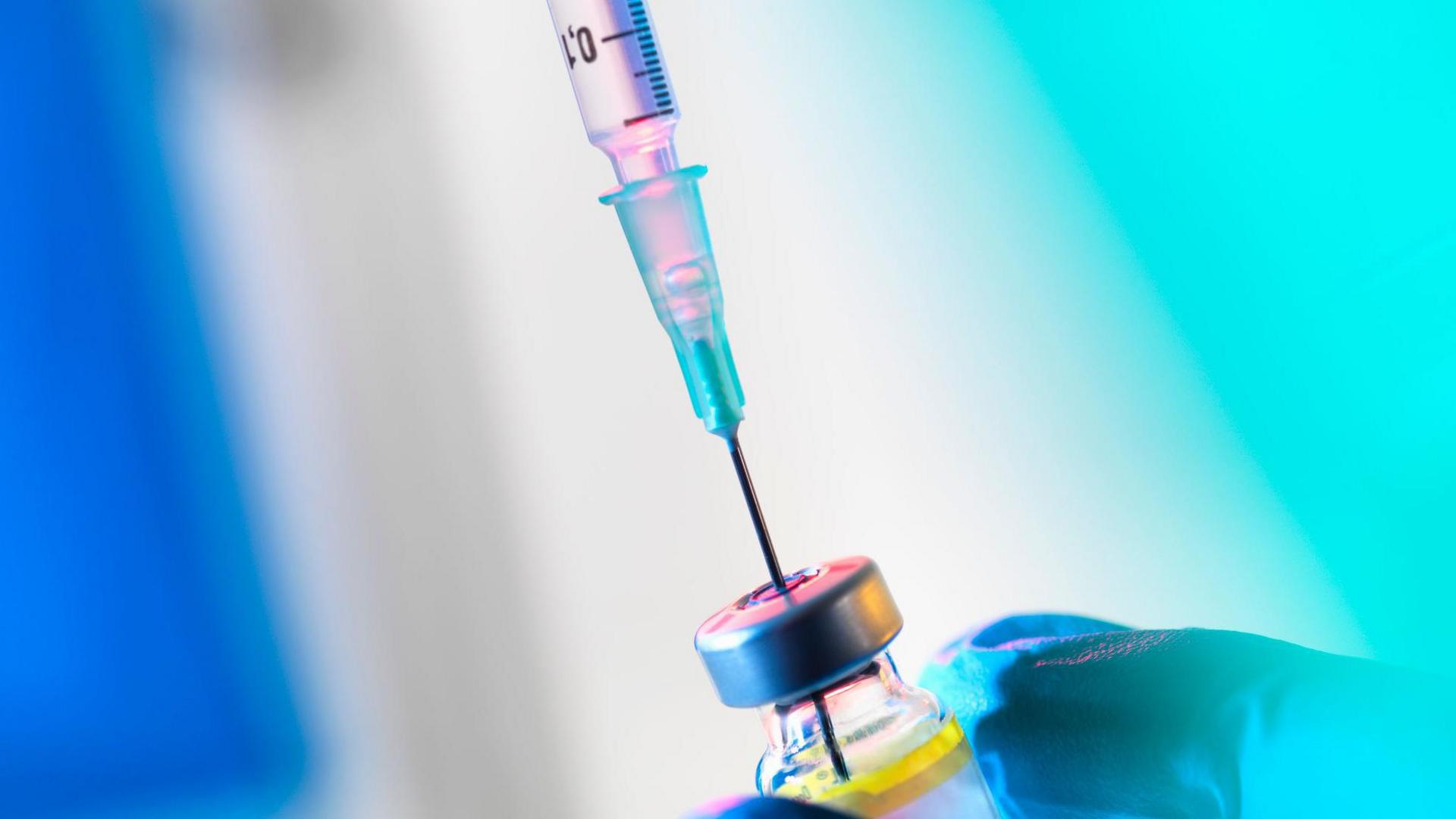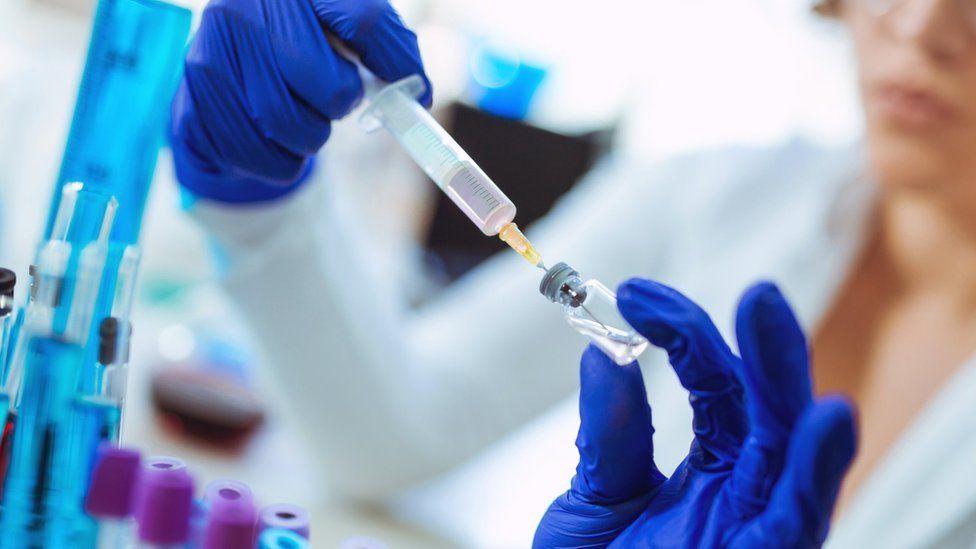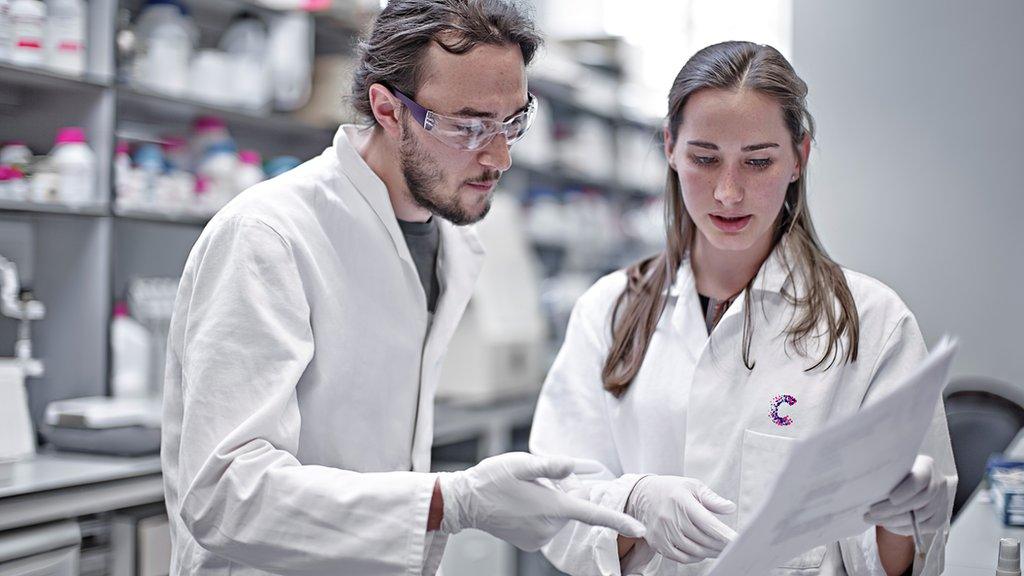Vaccine hope for cancer risk genetic disorder

Researchers hope a vaccine could teach the immune system of someone with Lynch syndrome to destroy cells
- Published
Oxford scientists are aiming to develop a vaccine for people with a genetic condition that increases their risk of a number of cancers.
Lynch syndrome is caused by a mutation in the gene that fixes mistakes in DNA when it is copied, which can lead to uncontrolled cell growth.
People with the condition have a higher risk of developing cancers of the bowel, womb, and ovaries.
About 1,100 bowel cancer cases in England each year are caused by Lynch syndrome and the condition is thought to increase the lifetime risk of the disease by 80%.
Researchers from the University of Oxford could potentially design a vaccine that teaches the immune system of someone with the disorder to recognise and destroy cells before they become cancer.
As part of the project - known as LynchVax - scientists will analyse cells from Lynch syndrome patients that are showing signs of becoming cancerous.
They will use their findings to determine which parts of a pre-cancer cell can be attacked by the immune system and if a vaccine approach is likely to work.
Simon Leedham, a professor of molecular genetics and an honorary consultant gastroenterologist, said people with Lynch syndrome get invited to attend bowel screening appointments at a younger age because of the high risk.
"LynchVax has the potential to reduce that risk," he explained.
"While our work is in its infancy, we are excited by the prospect of a vaccine that can potentially be used to prevent the multiple types of cancer that typically occur in people with Lynch syndrome and deliver tangible improvements in survival."
An estimated one in 400 people in England have the condition, according to the NHS, although only 5% are aware they are living with it.
Last year, the health service started rolling out a genetic test for Lynch syndrome.
Helen White, a member of the LynchVax patient public involvement group, said: "As passionate advocates for involving people with lived experience in research, we fully endorse the plans to reach out to the wider Lynch syndrome community to gather their views on a cancer-preventing vaccine.
"This is a crucial step in preparing for future clinical trials."
Cancer Research UK has awarded the team £550,000.
Chief executive Michelle Mitchell said: "Cancer vaccines continue to show promise in helping to create a world where people can live longer, better lives, free from the fear of cancer.
"Projects like LynchVax are a really important step forward into an exciting future, where cancers that occur in people with Lynch syndrome could potentially be prevented."
Get in touch
Do you have a story BBC Oxfordshire should cover?
You can follow BBC Oxfordshire on Facebook, external, X (Twitter), external, or Instagram, external.
Related topics
Related Links
- Published31 August 2024

- Published12 April 2024
